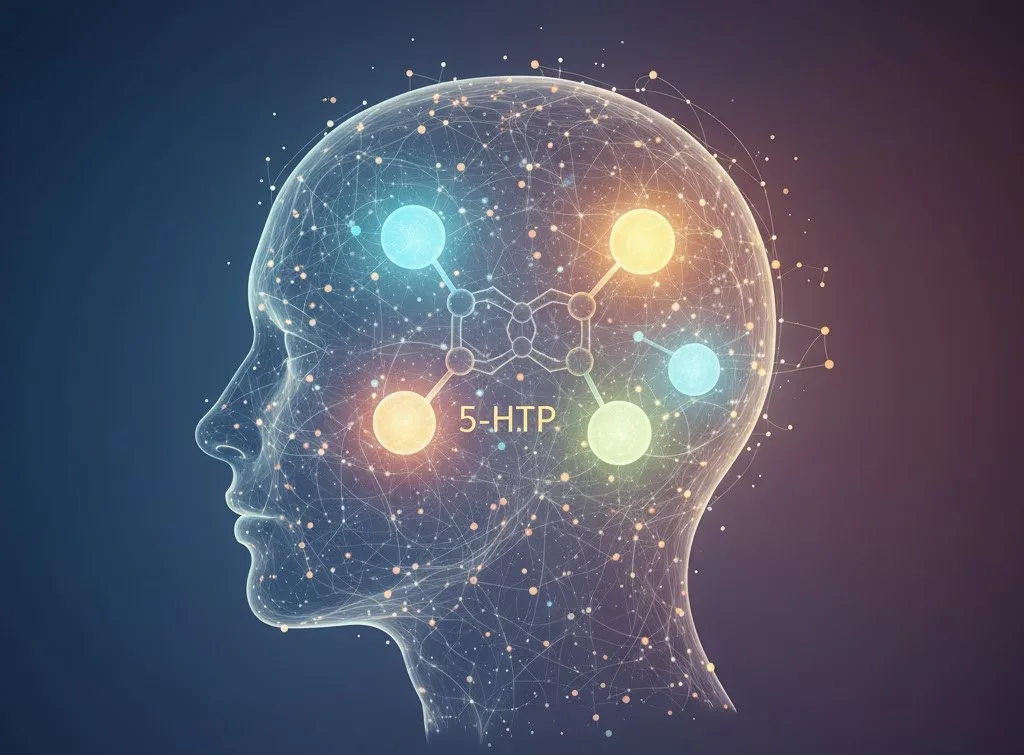For athletes, success is often viewed through the lens of physical training, muscle growth, and VO2 max. However, the article on L-5-Hydroxytryptophan (5-HTP) reveals that true athletic advantage may start in the brain. The compound's role as the direct precursor to serotonin—the brain's primary mood, sleep, and appetite regulator—makes it an unsung hero of peak performance.
Here is how the functions of 5-HTP directly impact an athlete’s career, training, and recovery:
1. The Mood and Motivation Multiplier
The article highlights that a deficiency of 5-HTP and serotonin can lead to depression and neuro-physical illnesses. For an athlete, this translates to a loss of the very mental edge required for competition:
-
Willpower & Consistency: High serotonin levels are associated with elevated mood and motivation. This is crucial for an athlete to maintain discipline, stick to a rigorous training schedule, and show up for those early morning workouts, even when tired.
-
Response to Stress: Professional and competitive sports create massive mental stress. Serotonin helps the brain regulate mood, making an athlete more resilient to the pressures of competition, travel, and public scrutiny.
2. The Engine of Recovery: Sleep and Melatonin
The most critical time for an athlete's physical recovery is during deep sleep. As the article notes, 5-HTP is eventually converted into melatonin, the hormone that regulates the sleep-wake cycle.
-
Muscle Repair: Inadequate or disordered sleep (a consequence of low serotonin/melatonin) directly impairs muscle recovery, decreases muscle-building hormones, and increases muscle breakdown hormones. By supporting the melatonin pathway, 5-HTP helps ensure the athlete gets the restorative sleep necessary to repair damaged tissue and replenish energy stores.
-
Fighting Overtraining Syndrome: Chronic fatigue and mood disturbance are core symptoms of overtraining syndrome. Maintaining healthy serotonin levels is vital to avoiding this cycle of psychological and physical exhaustion.
3. Fueling for Performance: Appetite and Weight Management
The article emphasizes 5-HTP's role in regulating appetite and managing obesity or extreme thinness. For an athlete, precise nutritional control is non-negotiable:
-
Satiety Control: Serotonin signaling plays a key role in satiety (feeling full). For weight-class athletes (e.g., wrestling, boxing) or those focused on lean body mass, 5-HTP's support for appetite control can be essential for hitting target weights and maintaining a consistent, healthy caloric intake without excessive hunger.
-
Balanced Energy: It helps athletes consume the correct amount of fuel, preventing the energy crashes that come with poor dietary regulation.
The Fatigue Paradox (A Note of Caution)
It's important to recognize the complex relationship between serotonin and athletic performance during prolonged exercise (like marathon running or long cycling). Some research suggests that while chronic low serotonin contributes to poor well-being, an acute rise in brain serotonin during endurance exercise may actually signal the brain to feel lethargy and accelerate central fatigue.
Therefore, the key for the athlete is not necessarily to acutely boost 5-HTP right before a race, but rather to use it to support:
-
Recovery and Sleep (Post-Exercise): For optimal restoration.
-
Long-Term Mood and Motivation: For consistent training.
In summary: The ability of 5-HTP to support serotonin and melatonin makes it a powerful component of an athlete's strategy, moving the focus from just physical training to comprehensive mental and physiological recovery.

